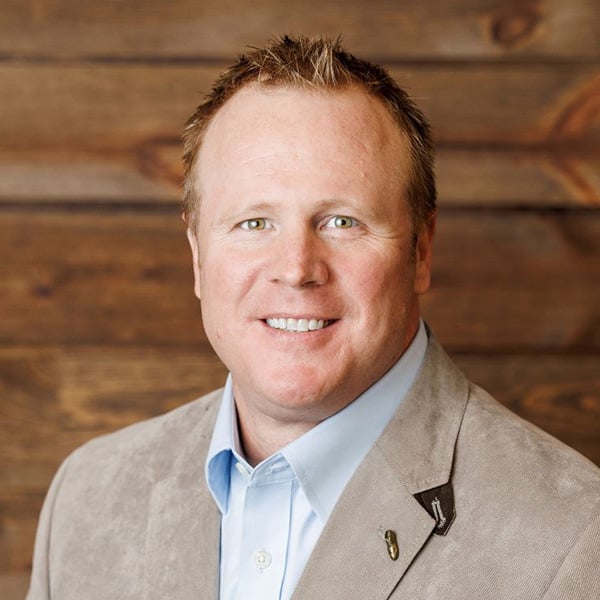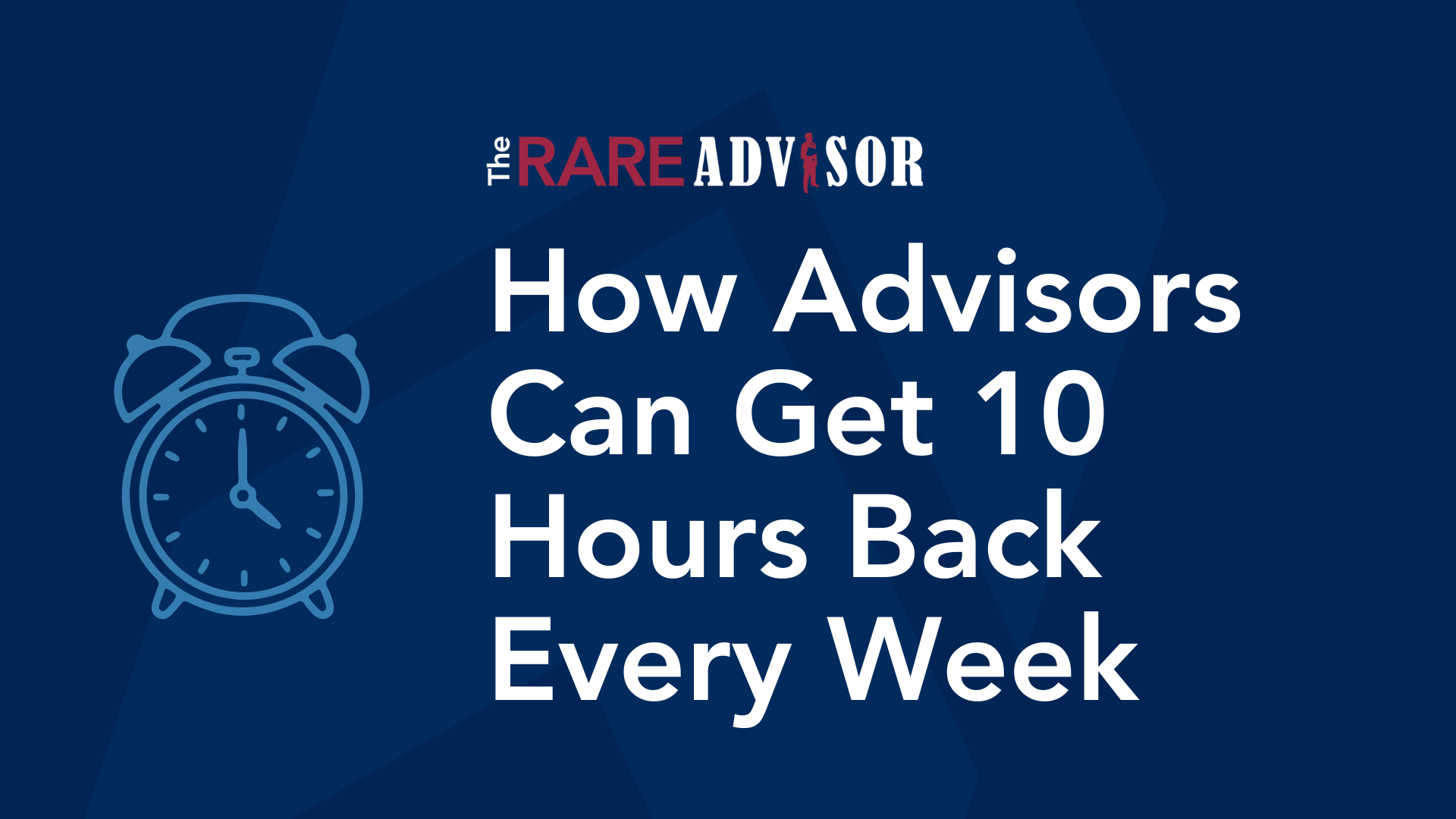2025 Seminar Marketing Trends for Financial Advisors
.png)
In this episode of the Financial Advisor’s Marketing Playbook, Mark Mersman breaks down the latest seminar marketing trends based on real-world data collected over the past several years at USA Financial. He explores the age-old question every advisor faces: Should you serve a meal at your seminar or not? Mark compares response rates from meal and non-meal events dating back to 2018, reveals how pandemic-era shifts and election cycles have influenced performance, and highlights which topics are driving the strongest turnout in 2025. If you’re a financial advisor planning your next seminar, this data-driven analysis will help you make smarter decisions and maximize your results heading into fall and winter.
Summary:
In this episode, Mark Mersman from USA Financial offers a deep dive into the evolving landscape of seminar marketing, emphasizing the importance of data-driven decisions. With over 25 years of experience executing and analyzing seminars, USA Financial has developed a comprehensive understanding of what works—and what doesn’t—when it comes to engaging prospects through educational events. One of the most common and persistent questions that financial advisors ask is whether or not they should serve a meal at their seminars. Mersman uses hard data to explore this question, comparing the effectiveness of meal and non-meal seminars across multiple years.
Looking back to 2018, meal-based seminars slightly outperformed non-meal events, producing an average reservation response rate of 1.6%. That means for every 10,000 households mailed, advisors could expect around 160 registrations. Interestingly, in 2019, the trend flipped—non-meal seminars gained traction and actually surpassed the performance of meal events. However, the unpredictable nature of 2020, largely due to the COVID-19 pandemic, rendered that year’s data virtually unusable. Mersman describes it as a “dumpster fire” and excluded it from any serious analysis.
As the market began to stabilize in 2021 and 2022, response rates remained generally low. Mersman attributes this to lingering discomfort among the public when it came to attending in-person events. Even by 2022, attendance remained sluggish. But 2023 marked a turning point. As consumer comfort with live events increased, meal-based seminars saw improved results, averaging a 1.29% response rate. Non-meal events, on the other hand, continued to underperform.
In 2024, the downward trend for non-meal seminars persisted, which Mersman partially attributes to the election year. Direct mail is a central marketing tool for these events, and election seasons dramatically increase the volume of mail landing in consumers' mailboxes. This can drown out financial seminar invites and suppress response rates. Despite this, meal seminars managed to hold steady, while non-meal events remained challenged.
Fast forward to 2025, and Mersman reports some of the strongest results USA Financial has seen since the pandemic. Meal-based seminars are currently averaging a response rate of 1.59%, and recent data from the last 10 events shows a spike up to 1.84%. Non-meal seminars, while still lagging, are making a slight comeback but only garnering about a 0.5% response rate. This represents a nearly threefold difference in performance between meal and non-meal formats.
Mersman acknowledges that meal seminars come with added marketing and event costs, but the increased response rate can more than justify the investment for many advisors. That said, he doesn’t dismiss non-meal seminars altogether. Some advisors argue that attendees of non-meal events are more serious or financially qualified. Mersman doesn’t take a firm stance on this, instead reinforcing the importance of matching event strategy to specific business goals and market conditions.
The episode also covers the top-performing seminar topics in 2025. These include:
- Social Security and retirement income
- Social Security and taxes
- Taxes alone
- Financial estate planning
- Social Security and Medicare
These topics continue to resonate with pre-retirees and retirees, offering advisors a reliable foundation for crafting relevant and engaging presentations. Mersman anticipates these themes will remain dominant, particularly as new legislative developments like the “Big Beautiful Bill” introduce fresh planning opportunities—especially around taxes. He hints that USA Financial will be rolling out new seminars to address these changes, which could further impact seminar success rates heading into fall and winter 2025.
In closing, Mersman reinforces the idea that data should guide decision-making. Seminar marketing isn't a one-size-fits-all solution—it’s a dynamic strategy that requires testing, adaptation, and a willingness to pivot based on what the numbers reveal. For advisors debating whether to host a meal-based event or a simpler presentation, the data presented in this episode offers a compelling case for the effectiveness of meal seminars in the current environment. As always, he invites advisors to reach out with questions and to continue leveraging USA Financial’s experience and insights to maximize their marketing results.
Transcript:
Mark Mersman, Chief Marketing Officer at USA Financial - What's up everybody! Today I want to talk about seminar marketing trends. You know, here at USA financial, we have been conducting seminar marketing for the better part of 25 years. And one of the things that we really focus on is understanding the data and really looking into what the data is going to tell us to help us make better decisions and help our advisors make better decisions. And there's a question that comes up every single year, all the time. It seems to be the never-ending question: Should I serve a meal or not? And what is that going to do to my number?
So I did a little bit of a study going back to shortly before the pandemic and wanted to share with you some of this data. So if you're watching on YouTube, you'll be able to see my screen. If you're listening on the podcast, I'll try to at least narrate some of the numbers that I'm gonna share. But the big thing here that I guess excites me is that it feels as though seminar marketing has now made a comeback and is certainly back. So if we look here at the top row, meal versus non-meal, going back to 2018, meal seminars generated a 1.6 % reservation response rate. So, the easy way to do that math, if you mailed 10,000 households at a 1.6 % response rate, you would get 160 registrations. Just to kind of keep that math simple, as we then shifted into 2019, and so in 18 meals outperformed non-meals slightly. The non-meal seminar did very well during that stretch and was kind of making a big comeback or a big surge, I guess, in the marketplace and even into 2019, the data that we saw.
Now, mind you, we conduct hundreds of seminars a year, thousands of seminars over this lifespan here. And in 2019, we kind of saw that flip where meals actually were lower performing than non meals. The 2020 data I didn't even include because that was as you can imagine was a bit of a dumpster fire. And so that data got really skewed. And so that's kind of a throwaway. As we shifted into 2021, you can obviously see response rates had gone down. People weren't quite that comfortable just yet coming to live events. And that even extended into 2022. Those two years from a seminar marketing standpoint, weren't all that great. As we shifted into 2023, we started to come out of that slump a little bit. People were a little more comfortable coming to meal events. Meal events saw 1.29 % average in 2023. Non-meal events suffered again in 2023, kind of extended into 2024. I think a part of some of this, the drop in 2024 can likely be attributed to the fact that it was an election year. And so, since this is all based off of direct response mail. I think that we saw, you know, the volume of the sheer volume of mail coming into people's homes and just the marketing and all that stuff that went into it kind of created a little bit of a lull in 2024. But as you see in 2025, we are seeing some of the highest responses that we've seen since before the pandemic. Meal events in 2025 are averaging 1.59 % non-meal events. Still making a little bit of a comeback, but not quite the response that everybody would like. I also took a moment to look at just the last 10 events, the last 10 meal events and the last 10 non-meal events that we had conducted or our advisors had conducted throughout the country and that number is starting to continue to trend upwards. So meal events, the last 10 in 2025 here, 1.84 % non-meal events were right around a half a percent.
So if you're thinking about the seminar marketing world, understand, I certainly understand that meals can obviously add more to the marketing expense. However, your response rates will certainly be you know, three times higher right now with meal events versus non meal events. That doesn't necessarily mean that, you know, you should completely scrap the idea of non meal events. They certainly have their place. Oftentimes advisors will say, well, prospects are a little more serious about that. You know, I'm not here to get into that argument. I can make a case on both sides of the fence. I'm just trying to share some of the data that we have seen.
It's important to us to track all of this so that we can relay it to advisors that we work with. if you're considering as we enter into the fall of 2025 here, if you're considering and weighing between a meal and a non meal, hopefully this information might help you make that decision. Some of the most popular seminar topics here in 2025 are Social Security and retirement income, Social Security and taxes, taxes alone, financial estate planning, and then Social Security and Medicare. So those have been the five most popular topics that we've seen conducted here at USA Financial. I would imagine, you know, as we roll out some of our new seminars as it relates to taxes and the one big beautiful bill and some of the changes there and the opportunities that that presents, I think that we'll see this trend kind of continue into fall and into the winter. So hopefully this provides a little bit of guidance for you as you're thinking about your seminar marketing heading into the end of 2025. So do with that what you will. Hope all of you are having a wonderful day, a wonderful year, and feel free to reach out to us if you have any questions as it relates to seminar marketing. Take care.
--
The Financial Advisor Marketing Playbook is a podcast/video series for high-performing financial planning professionals that are committed to improving their craft, helping their clients, and growing their business. Hosted by Mark Mersman, Chief Marketing Officer at USA Financial, this series contains a wide variety of content – from quick win ideas to long-form interviews, each episode provides actionable marketing ideas and insights that can be implemented easily into your practice. From digital marketing to traditional direct-response marketing, each episode delivers straight-forward and engaging content that any financial professional can use to improve their bottom line and grow their practice.
Financial Advisor Marketing Playbook is also a podcast! Subscribe today via Apple Podcasts or your preferred podcast listening service for easier on-the-go listening.
Author Info

Mark Mersman is the Chief Marketing Officer at USA Financial, joining the firm in 2004. He has held numerous roles within the company prior...
Related Posts

The Psychology Behind Your CTA: Why Prospects Don’t Click “Book a Call”
In this episode of Financial Advisor Marketing Playbook, Mark Mersman breaks down the real psychological barriers that stop prospects from clicking “book a call” on an advisor’s website—and how small language and design changes can dramatically improve conversions. You’ll learn practical, compliant fixes including softer CTA language, expectation statements, empathy‑based messaging, simplified design, and reassurance techniques that lower emotional friction. If you want a website that encourages prospects to take the first step confidently, this episode delivers actionable guidance advisors can implement immediately.

5 Marketing Trends for Financial Advisors in 2026
Have you noticed how fast technology is changing the way you work with clients? Artificial Intelligence (AI) isn’t just a buzzword anymore; it’s transforming how you connect, deliver value, and grow. As financial advisors, you're positioned at the unique intersection of technology, finance, and marketing—and the pace of change shows no signs of slowing down.

How Advisors Can Get 10 Hours Back Every Week
In this episode of The RARE Advisor, host Aaron Grady and USA Financial Pareto coach and Practice Management Consultant Allan Oehrlein dive into time allocation as a core lever for advisory success. They unpack the biggest time drains—email, unsolicited calls, and open-door interruptions—and lay out a practical framework for calendar rebalancing that starts with personal time, management time, client appointments, dedicated communications windows, “work on the business” time, and high-impact growth activities. With real-world stories showing how advisors shift from reactive days to structured weeks (and even reclaim Fridays), Aaron and Allan share easy-to-implement tips: color coding calendars, scheduling buffers, daily huddles, and call/appointment protocols. If you’re ready to audit your calendar, define your ideal week, and create structure that truly liberates your practice, this conversation is your next step.

The Psychology Behind Your CTA: Why Prospects Don’t Click “Book a Call”
In this episode of Financial Advisor Marketing Playbook, Mark Mersman breaks down the real psychological barriers that stop prospects from clicking “book a call” on an advisor’s website—and how small language and design changes can dramatically improve conversions. You’ll learn practical, compliant fixes including softer CTA language, expectation statements, empathy‑based messaging, simplified design, and reassurance techniques that lower emotional friction. If you want a website that encourages prospects to take the first step confidently, this episode delivers actionable guidance advisors can implement immediately.

5 Marketing Trends for Financial Advisors in 2026
Have you noticed how fast technology is changing the way you work with clients? Artificial Intelligence (AI) isn’t just a buzzword anymore; it’s transforming how you connect, deliver value, and grow. As financial advisors, you're positioned at the unique intersection of technology, finance, and marketing—and the pace of change shows no signs of slowing down.

How Advisors Can Get 10 Hours Back Every Week
In this episode of The RARE Advisor, host Aaron Grady and USA Financial Pareto coach and Practice Management Consultant Allan Oehrlein dive into time allocation as a core lever for advisory success. They unpack the biggest time drains—email, unsolicited calls, and open-door interruptions—and lay out a practical framework for calendar rebalancing that starts with personal time, management time, client appointments, dedicated communications windows, “work on the business” time, and high-impact growth activities. With real-world stories showing how advisors shift from reactive days to structured weeks (and even reclaim Fridays), Aaron and Allan share easy-to-implement tips: color coding calendars, scheduling buffers, daily huddles, and call/appointment protocols. If you’re ready to audit your calendar, define your ideal week, and create structure that truly liberates your practice, this conversation is your next step.

